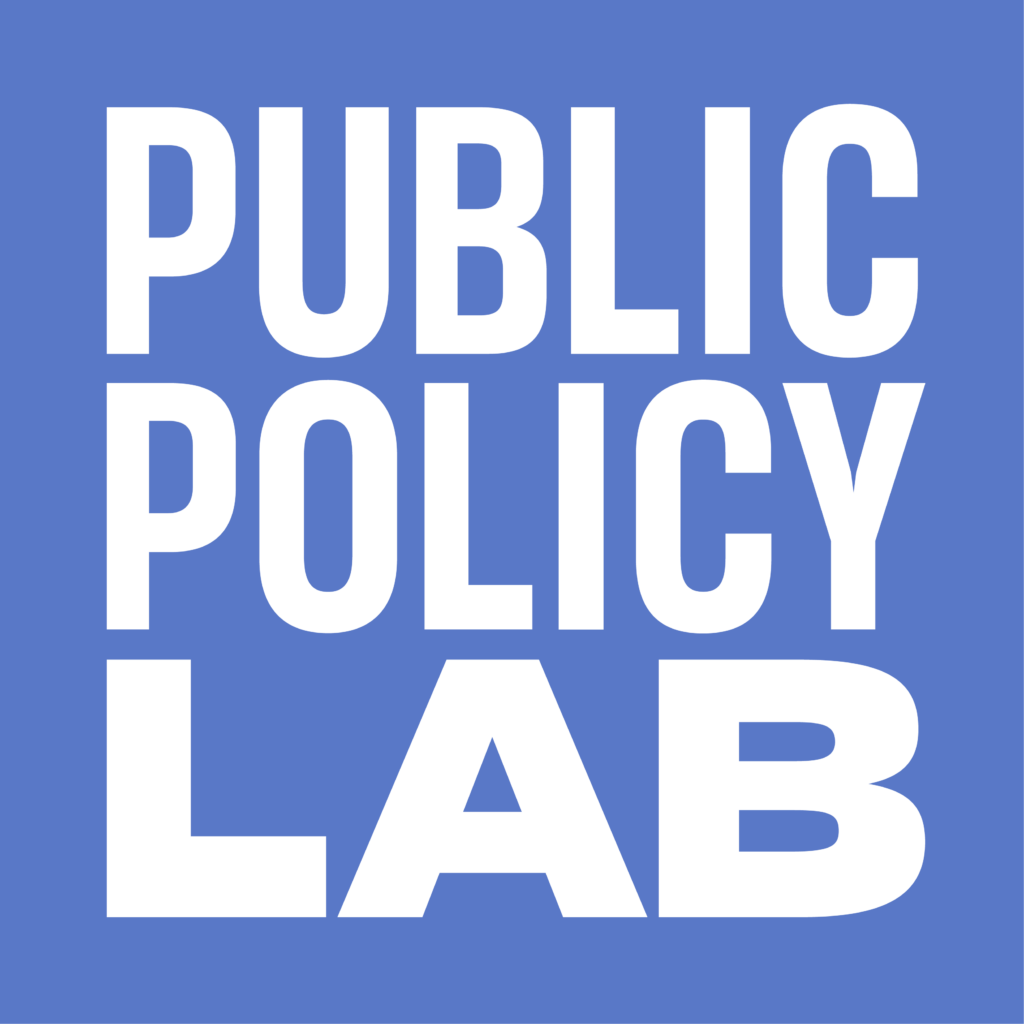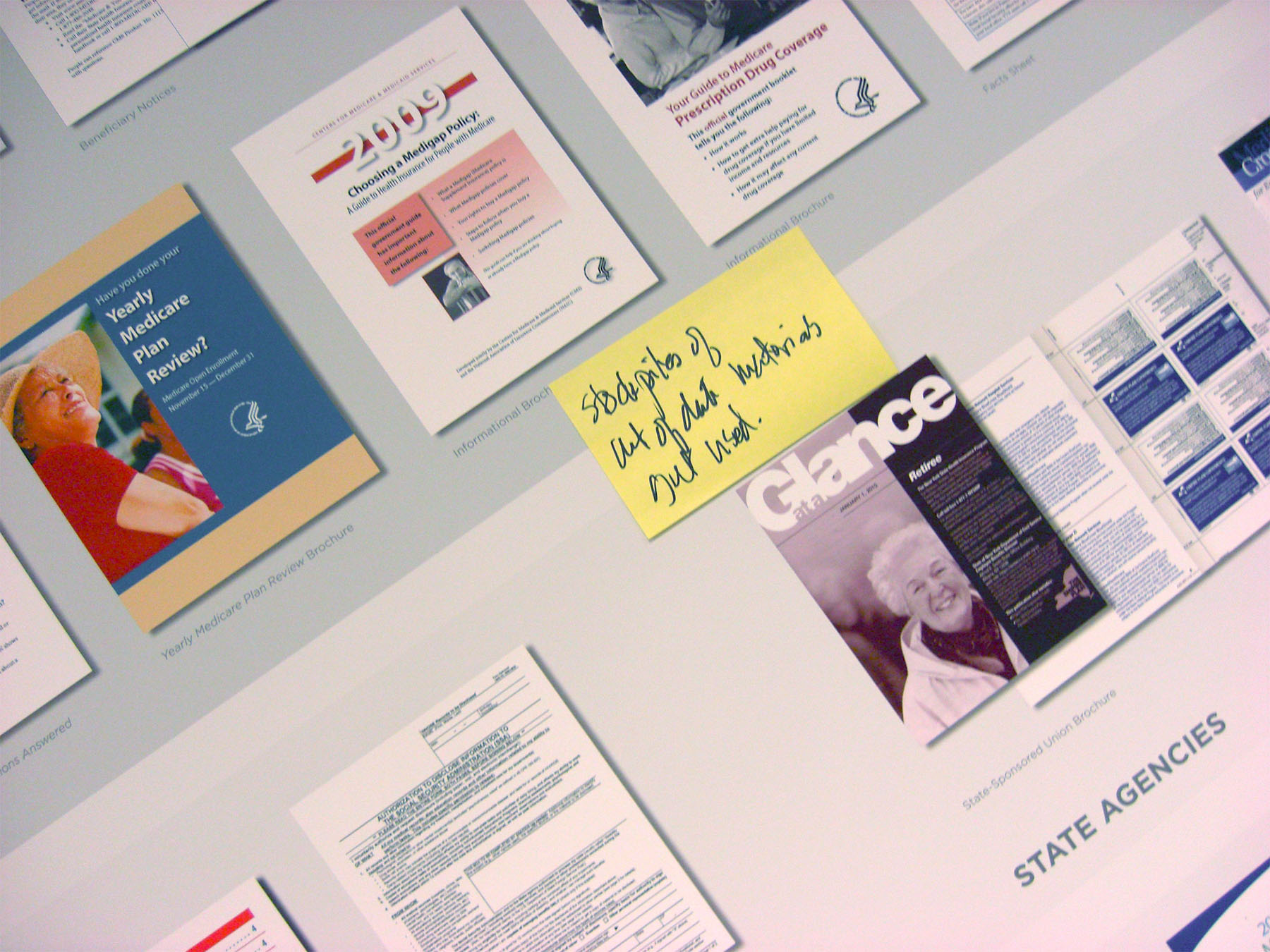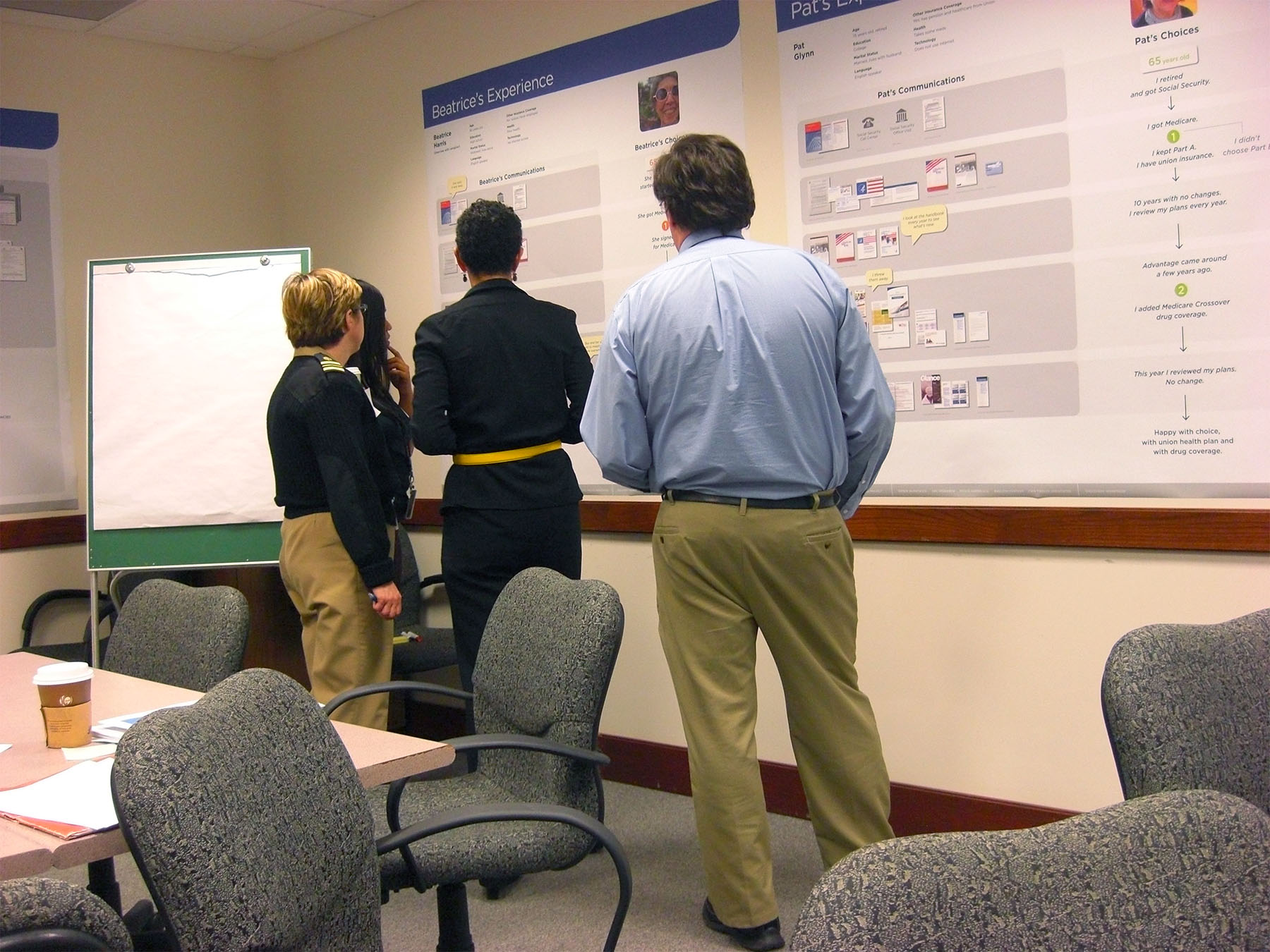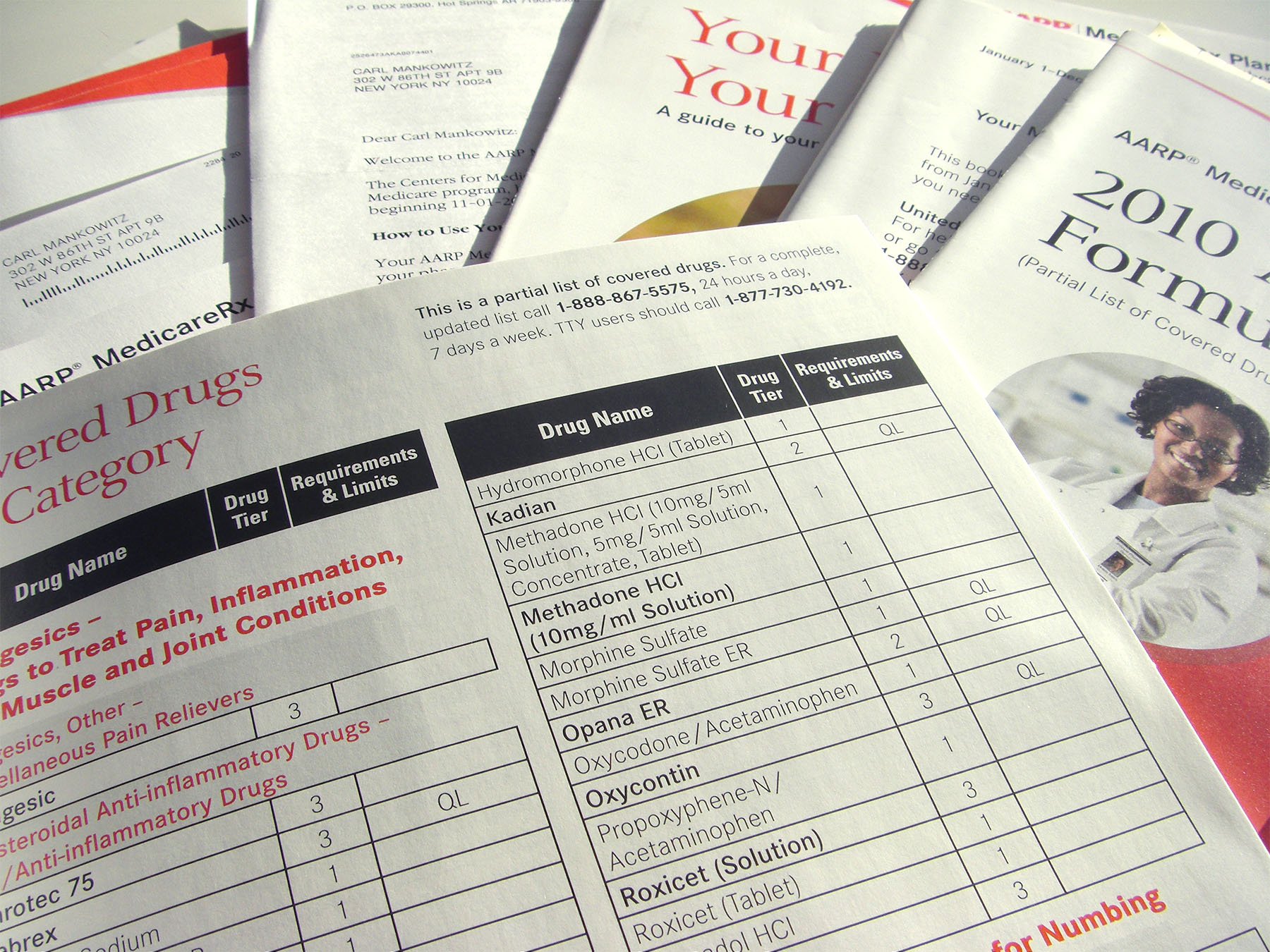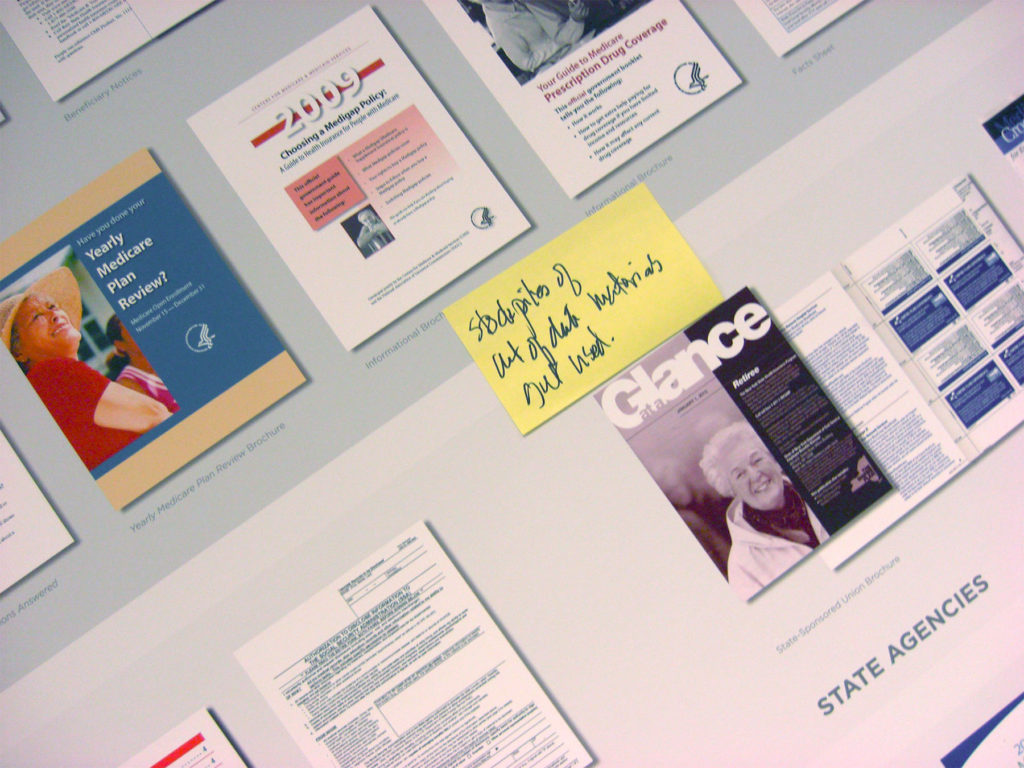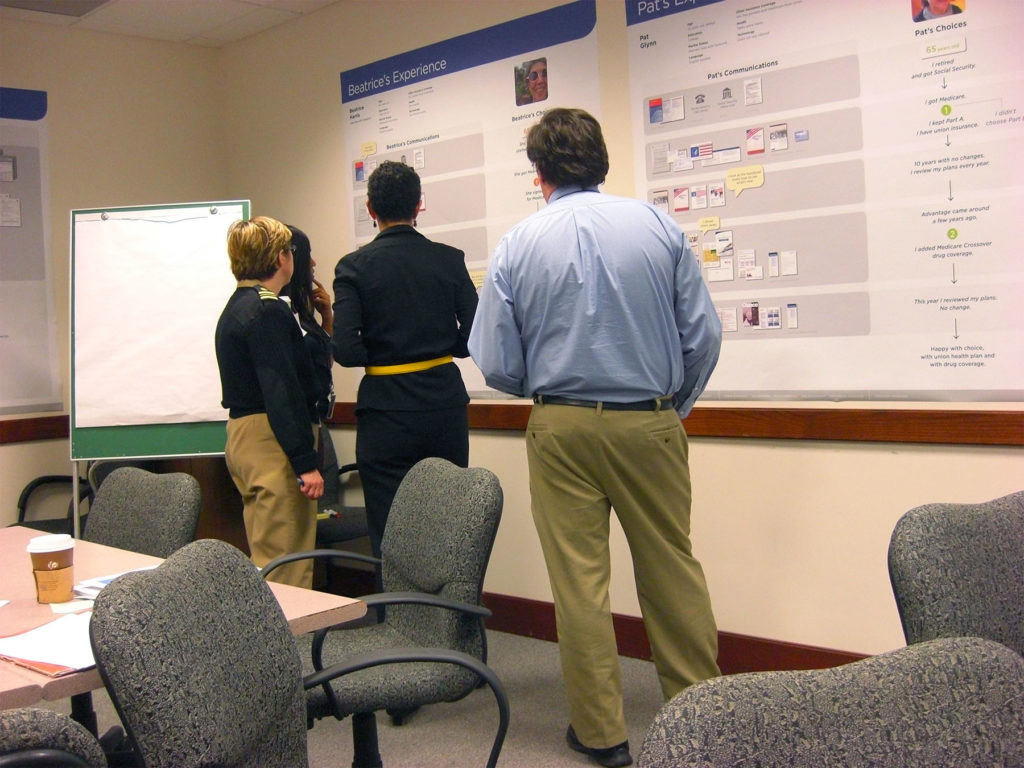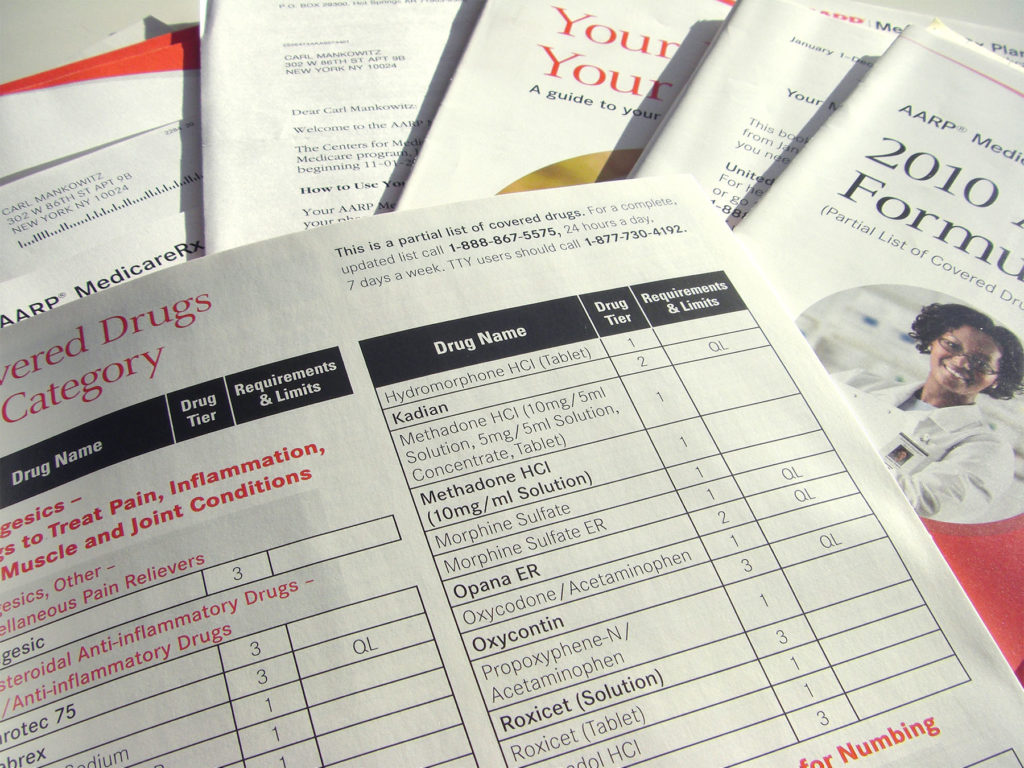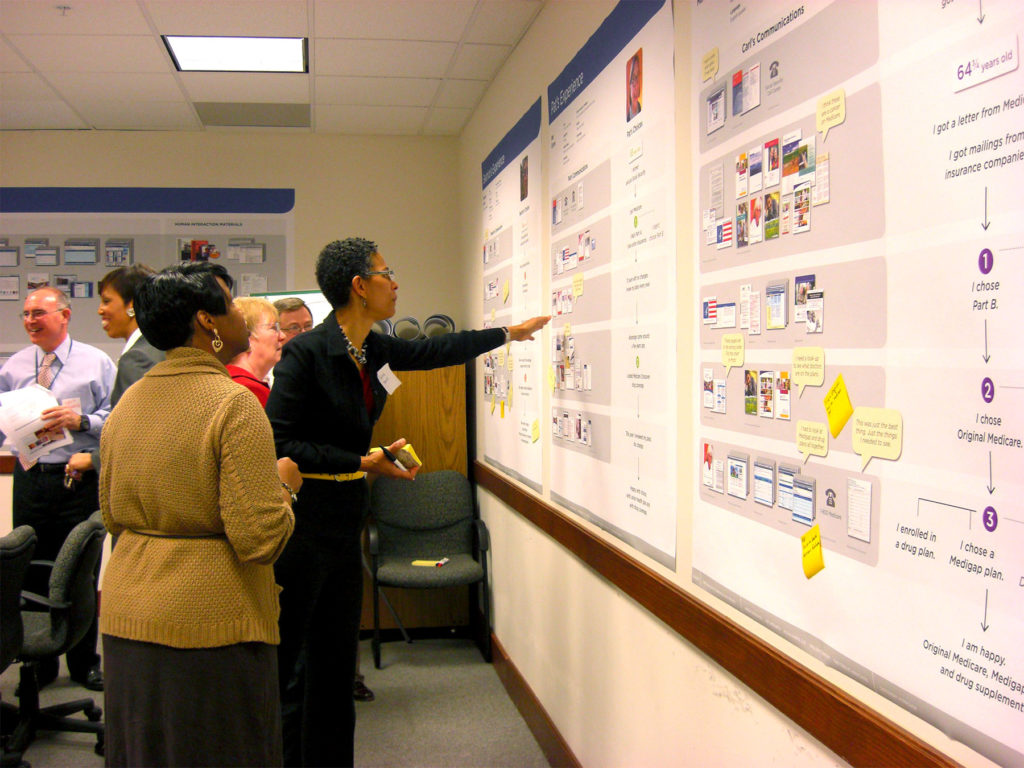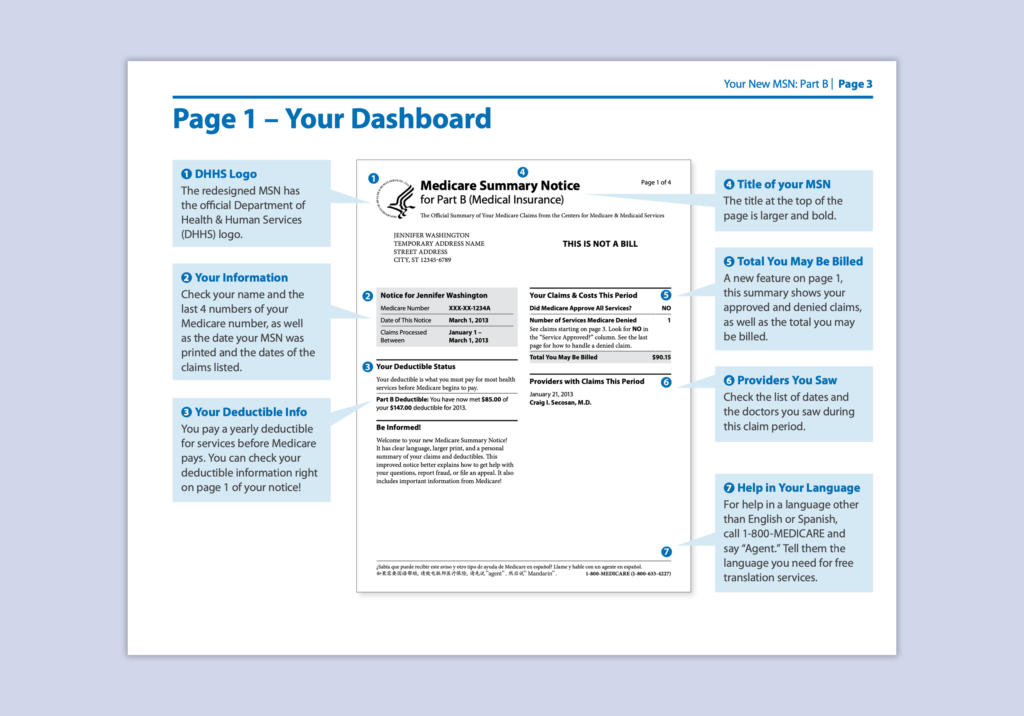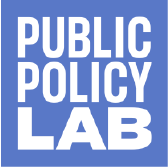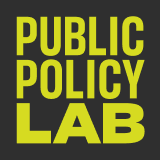Improving Beneficiaries’ Medicare Understanding
How can Medicare better communicate with Americans about their health care?
Partners & Funders
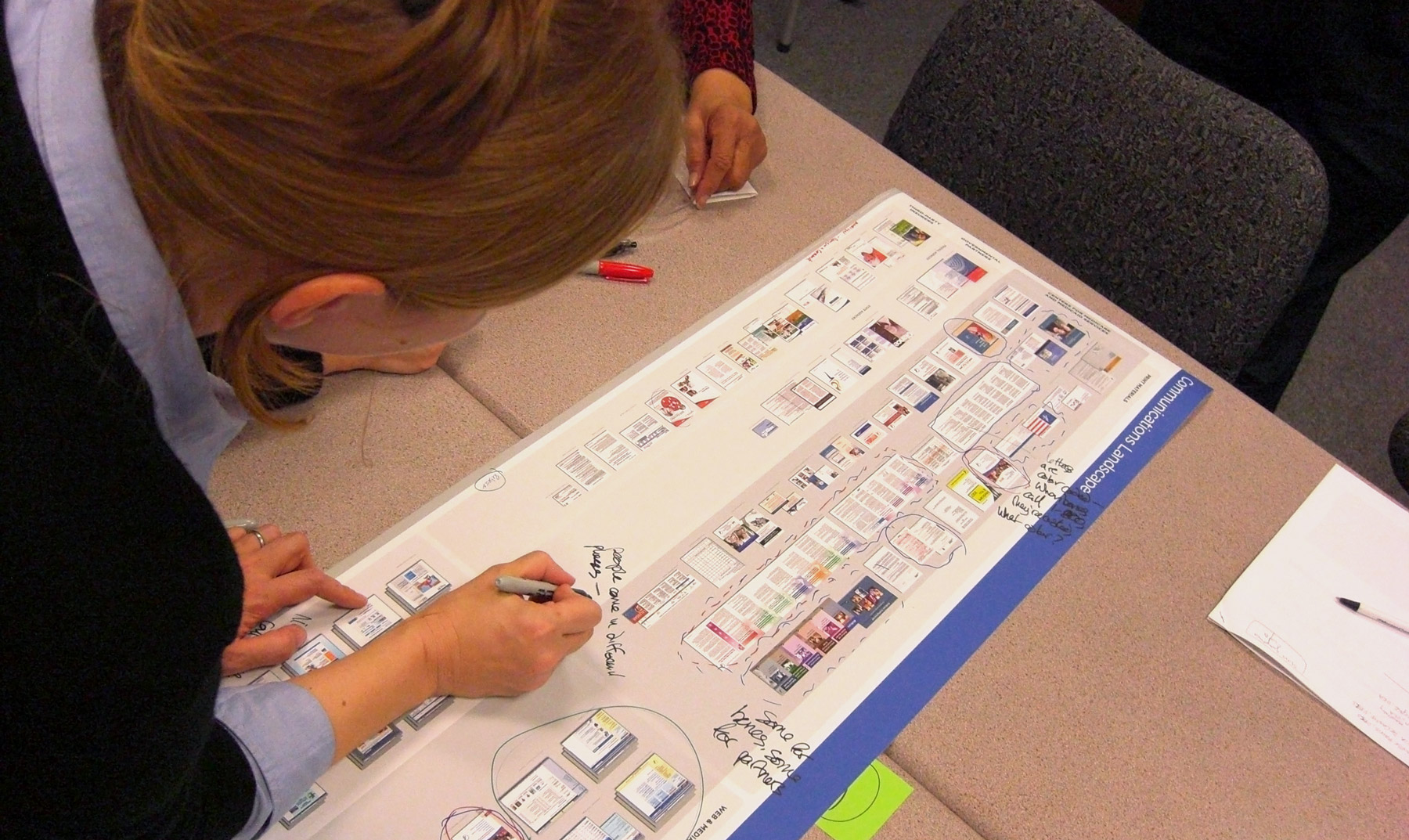
The Project
PPL’s founders partnered with the federal agency that manages Medicare to explore the healthcare-information needs of Medicare beneficiaries. Our goal was to use human-centered methods to design communications that empower Americans to better understand and manage their care.
The Outcome
Up to four times a year, more than 35 million Americans are sent a Medicare Summary Notice, updating them on their Medicare claims, bills, and available services. After conducting research and co-design with beneficiaries across America, we helped develop a more accessible, engaging, and informative notice. The new document incorporates a ‘dashboard’ with critical information in one spot, a checklist for free preventive care, features to fight fraud and claim errors, an easy appeals form, and other beneficiary-friendly features.
Improving Beneficiaries’ Medicare Understanding

How can Medicare better communicate with Americans about their health care?
Partners & Funders
The Project
PPL’s founders partnered with the federal agency that manages Medicare to explore the healthcare-information needs of Medicare beneficiaries. Our goal was to use human-centered methods to design communications that empower Americans to better understand and manage their care.
The Outcome
Up to four times a year, more than 35 million Americans are sent a Medicare Summary Notice, updating them on their Medicare claims, bills, and available services. After conducting research and co-design with beneficiaries across America, we helped develop a more accessible, engaging, and informative notice. The new document incorporates a ‘dashboard’ with critical information in one spot, a checklist for free preventive care, features to fight fraud and claim errors, an easy appeals form, and other beneficiary-friendly features.


